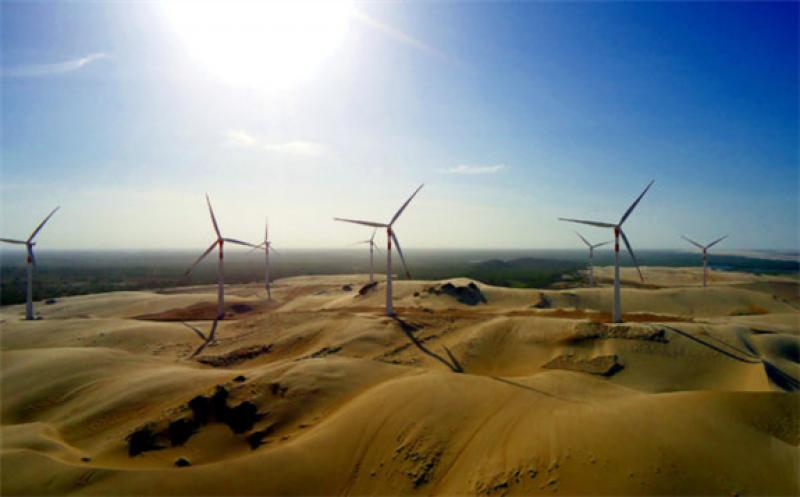The company will seek long-term financing to finance investments in the wind turbines while evaluating complementary financing, such as the issuance of debentures.
30% of the future production of wind farms in Bahia was sold to power distributors in an auction promoted by the Brazilian government last October.
The rest of the wind energy has been traded on the free market.
“We signed several contracts with consumers that are complementary. We have a very comfortable part (of the energy already sold), which makes us very comfortable to start construction, ”said the general manager.
Statkraft operates renewable energy plants in Brazil that include hydroelectric and wind plants, with a total capacity of 450 megawatts. With the completion of the Bahia complex, assets will more than double, to 967 megawatts.
Late last year, Lapuerta said Statkraft would seek to quadruple its capacity in Brazil in the next five years.
Norwegian energy group Statkraft intends to continue expanding its business in Brazil and the next step in that direction should involve some investment in solar generation, the company’s chief executive in the country told Reuters on Monday.

The signal of appetite for solar assets comes in parallel with the company’s announcement of an investment of 2.5 billion reais for the construction of a wind complex in Bahia whose works are due to begin in January 2021.
“Next year, 2021, of course we will have construction as a priority, and due to Covid-19 the safety of people. But we also want it to be an important year from a solar point of view,” said Fernando, CEO from Statkraft Brasil. Of the door.
“We also want to start advancing solar technology in Brazil and we have projects for that,” he added, and mentioned that the company has a photovoltaic project in Bahia with a potential of 500 megawatts of capacity.
In addition, Statkraft has wind projects in its portfolio, including a possible expansion of the recently announced wind farm in Bahia, which could double capacity from 519 megawatts to 1.1 gigawatts in the future.
“Today the company has a main focus on the development, construction and operation of wind and solar energy in Brazil. We continue to participate in M&A (mergers and acquisitions), but with the strongest focus, the growth engine, in the ‘greenfield’ “, he specified. Lapuerta, in reference to projects built from scratch.
To get its businesses off the ground, Statkraft will consider all opportunities, from government auctions to new energy projects, to negotiate future production in contracts in the free electricity market, where large consumers, such as industries, purchase their supply directly from generators and marketers.
Private auctions conducted by companies to buy renewable energy under long-term contracts are also on the radar.
“We are going to work on commercial possibilities. It could be by auction, it could be bilateral contracts,” Lapuerta said. We try to participate in all the ways that exist in the market to commercialize energy ”.
The company also evaluates the self-production model, which implies the construction of plants to specifically serve certain clients, who in these cases become partners in the projects to obtain discounts on the charges that the legislation assures those who produce their own energy. .
“It is something that is very active in the market,” the executive said.
Lapuerta said that the fact that Statkraft Brasil has an electricity marketing unit facilitates the structuring of contracts to make the plants viable, while the Norwegian group’s participation in Brazil will help guarantee investments.
“We have the support of the parent company, which has growth objectives in Brazil, it is one of the main countries for the growth of the company abroad.”